-
#658 – Paradise Hills (2019)
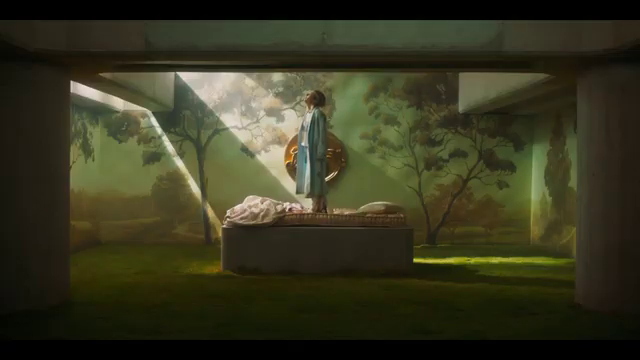
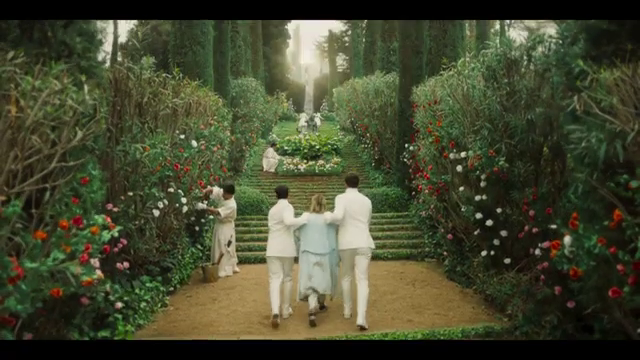
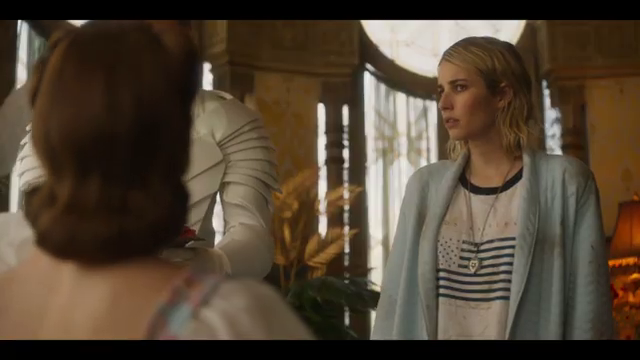
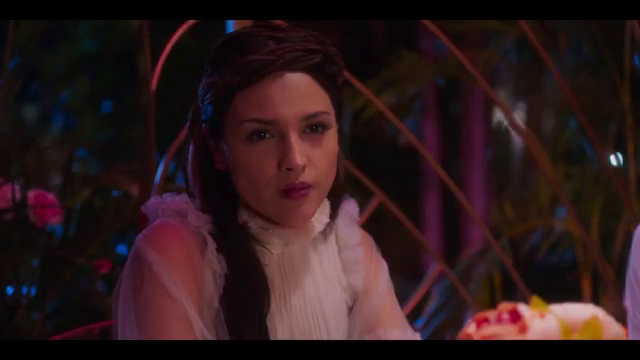
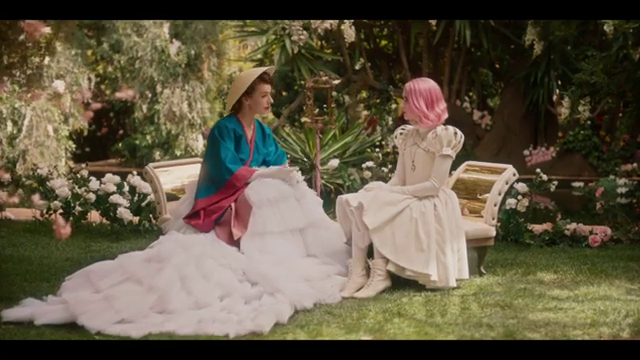
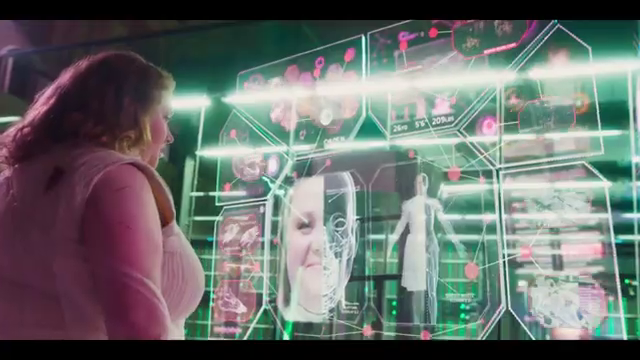
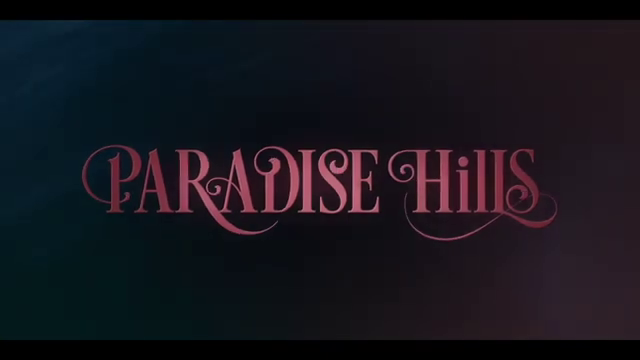
Paradise Hills (2019)
Film review #658
Director: Alice Waddington
SYNOPSIS: Uma wakes up in a strange room with no memory of how she got there. It turns out she is on an island called Paradise, where she has been sent by her parents to become a more obedient and refined member of society. Trapped there with a host of other women, she plots her escape, while attempting to uncover the mysteries of the island…
THOUGHTS/ANALYSIS: Paradise Hills is a 2019 film. The film centres around Uma, a young woman who wakes up on a mysterious island known as Paradise. She, along with the other women there, have been sent their because they have been disobedient and unrefined, and are to be treated to become better members of the elite upper class of society. Uma makes friends with some of the other ‘inhabitants’ and uncovers the dark truths of the island as she plots her escape. The premise is simple enough to follow, and we are immediately thrown into this strange world that feels full and expertly crafted: the highlight of the film is the sets, design and costumes that ooze complexity and elegance, yet have a certain strangeness about them, obviously leaning into an Alice in Wonderland aesthetic. We don’t really get too much of a glimpse of the world outside of this island: we only know that there is an extreme class divide between the rich and poor, although we only ever see the rich side of things. This is not really an issue though, as it is enough to go on for the most part. The main issue with this film is the story never really goes anywhere: it sets the scene and some bits and pieces, but is too poorly paced in exposing viewers to new secrets of the island and raising the stakes at the appropriate times.
Uma builds a relationship with the other inhabitants of the island, whose motivations and personalities are well defined. The trouble is that these relationships never really cohere into something strong and worthwhile which the film wants them too. Uma’s relationship with Amarna becomes a promising cornerstone of the film and the glimpse of hope amidst the gloom of the island’s machinations, but it never approaches a critical mass where it becomes something substantial. hen Amarna disappears halfway through the film, that cornerstone also disappears, and the film becomes even more lost. There is something that is meant to be substantial about someone leaving and having their absence felt, but it’s not really dealt with in the story.
The film takes a sharp turn at the ending, as all the loose ends are complicated even further with even more threads in the finale, and a confrontation with the Duchess (Milia Jovovich), who turns out to be a half…plant? I don’t know, it didn’t really make any sense or fit in with the film in any way. Also, the relationships with the characters Uma bonds with essentially amount to nothing, and a character introduced in the last twenty minutes instead becomes the focus and solution to everything: it just so often feels like the most important aspects that the film built up really matter. The film really needed a better script to bring everything together, and Alice Waddington in her directorial debut unfortunately is not able to wield the loose ends she has been handed. Paradise Hills has a strong look and feel, while offering some interesting characters, but lacks almost any direction in the plot, or any notion of how to tie anything together. This culminates in an ending that leaves you wondering just what any of what was built up mattered.
-
#657 – Alienated (2021)
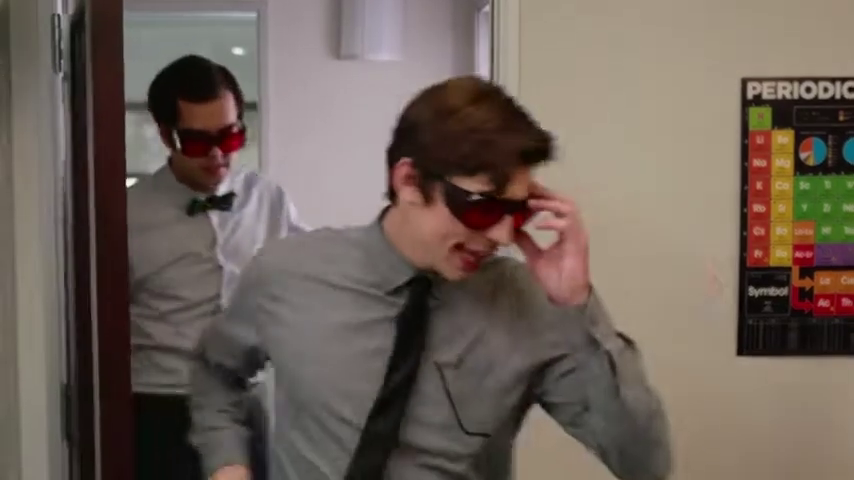


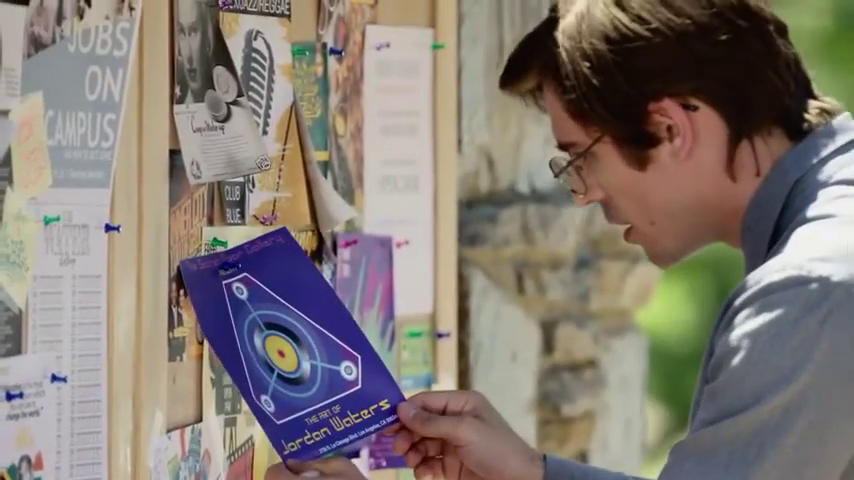
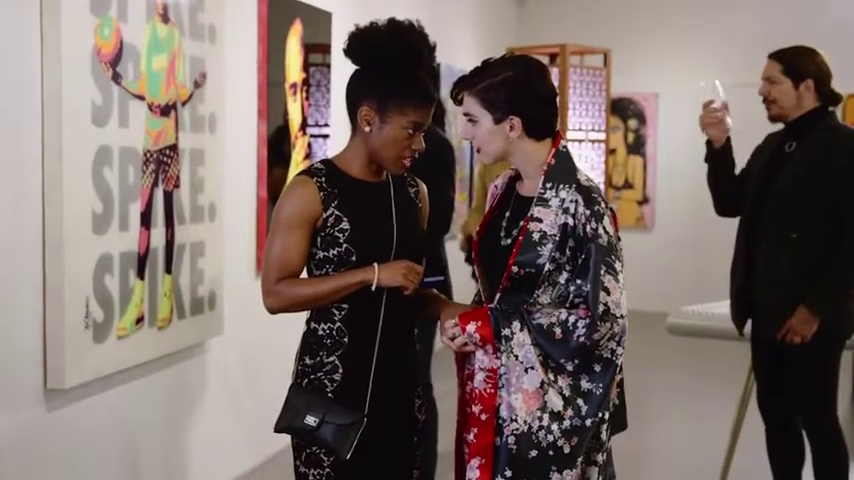
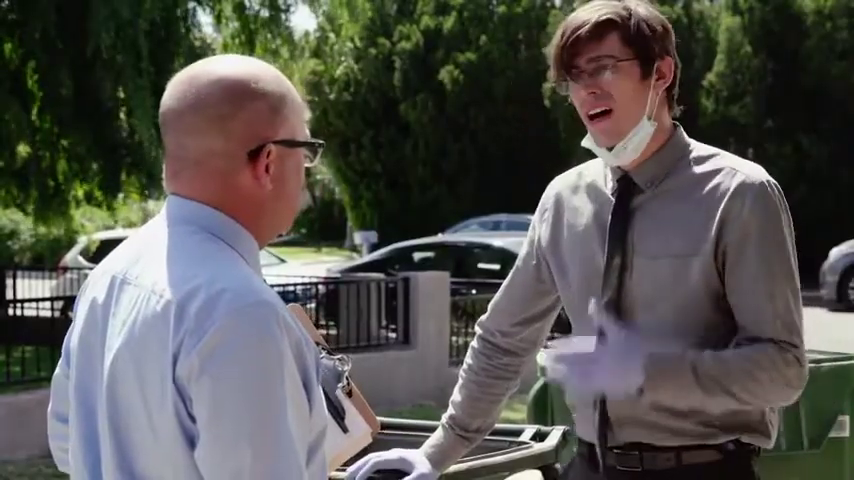

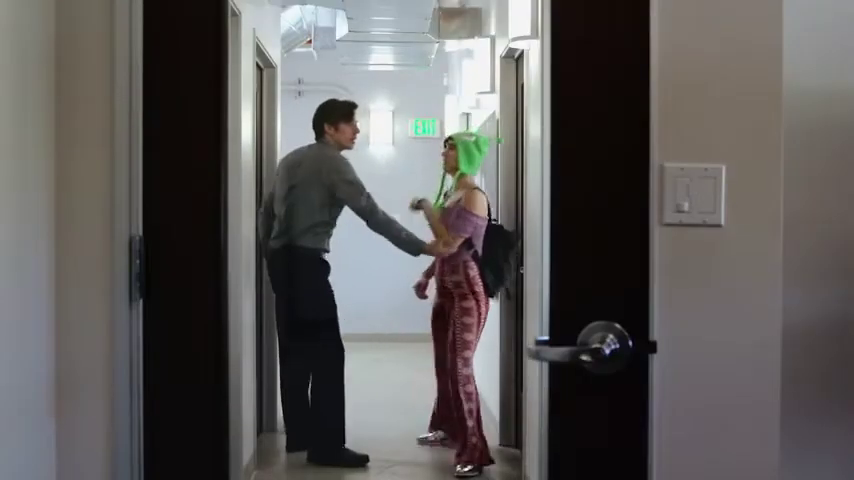
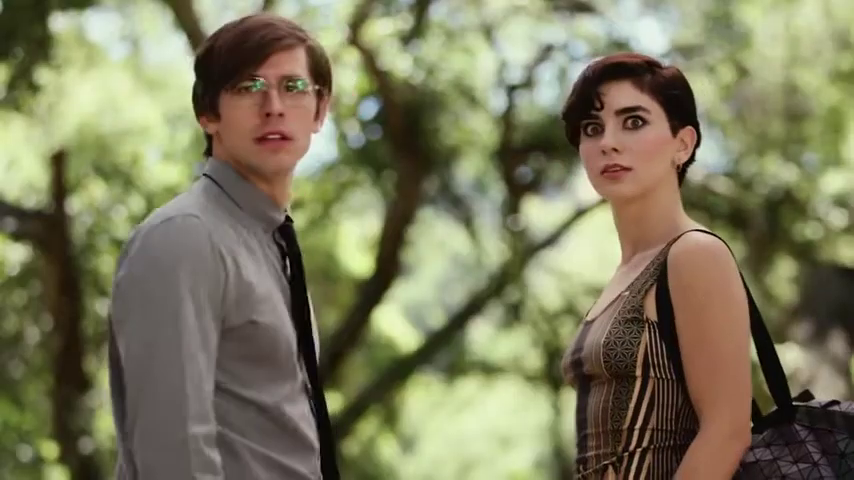

Alienated (2021)
Film review #657
Director: Darryl Anka
SYNOPSIS: A scientist who is struggling with his latest experiment with quantum teleportation has a chance encounter with a UFO. When he sees a flyer for an artist’s exhibit featuring an image that looks suspiciously like the UFO he saw, he goes to the exhibition to meet her. Unbeknownst to him, however, the artist is actually an alien who came down from the ship…
THOUGHTS/ANALYSIS: Alienated is a 2021 sci-fi romance film. David Bennett is a physicist who hit a dead-end with his latest experiment on quantum teleportation, and also dealing with his dad’s hoarding, which threatens his eviction. When out for a walk, he sees a UFO in the sky. Later, he comes across a flyer for an artist’s exhibition which features the shape of the UFO he saw. At the exhibit, he finds the artist, a quirky young woman named Jordan Waters. The setup is embarrassingly simple: A scientist who only believes in rationality and objective truth, and a quirky artist who values creativity and expression. Combined, they make the very typical odd couple in this sci-fi romance. I suppose the twist is that Jordan is actually an alien from the UFO that David saw, but I don’t think her being an alien really influences the story that much anyway: she seems perfectly adapted to Earth, and is not really a fish-out-of-water character, only having a few forced moments of her being ignorant about earth’s customs, which feel like they’re forced upon her character through the script than a reflection on her character. She is also pursued by Ray Watts, a conspiracy theorist who believes aliens walk among us, and sees the UFO too. This sub-plot doesn’t really connect to or alter the central romance plot in any way, it’s just to add in a little bit of threat I suppose. The film really limps along with no real development between the characters, or overcoming obstacles, it’s just a bit dull, and fails to go into any real depths.
A romance film such as this has to hinge on the chemistry between the main characters: this does not have that. As mentioned, the two are polar opposites in the most cliched way ever, offering very little room for individuality or something to organically develop. The acting is really poor, and for some reason every line is delivered in the exact same tone and volume, equalising all of the delivery in such a way there is absolutely no room for expression, quiet or loud moments; it just feels like reciting lines over and over with no personal input. Likewise, there’s no real scenes where David and Jordan’s relationship really develops, or we see them naturally being together; it’s just stilted dialogue all the way through. Grace Lacey as Jordan fills her role reasonably well, but there’s no real opportunity for her to be the free spirit she is supposed to be. David’s relationship with his Father provides another sub-plot that again barely ties to the main story, but does offer at least an emotional moment or two. It should also be noted that David’s Father has the worse fake Irish accent ever, and it is overwhelmingly distracting in every scene he is in.
In terms of everything else, the effects are fairly bland and uninteresting: the sci-fi elements don’t really add anything at all to the plot to make it interesting. Jordan has this power to alter her luck or something, which she uses when she is being pursued by the conspiracy theorist, but again it just doesn’t figure into anything, and it seems weird to establish a reality-altering ability and not have it figure into anything. Everything is also shot really close up a lot of the time, which is probably to hide the small sets, and barely establishes the setting a lot of the time. The close ups would make sense if the characters had an emotional reaction to anything, but they just don’t. Alienated takes a very cliché setup and fails to generate any kind of chemistry or emotional response. The sci-fi element barely figures into the plot, and again adds very little. Jordan is a somewhat likable character, but she’s left with very little to work with in terms of a poor story, weak chemistry, and just an overall undercooked production.
-
#656 – From Beyond (1986)
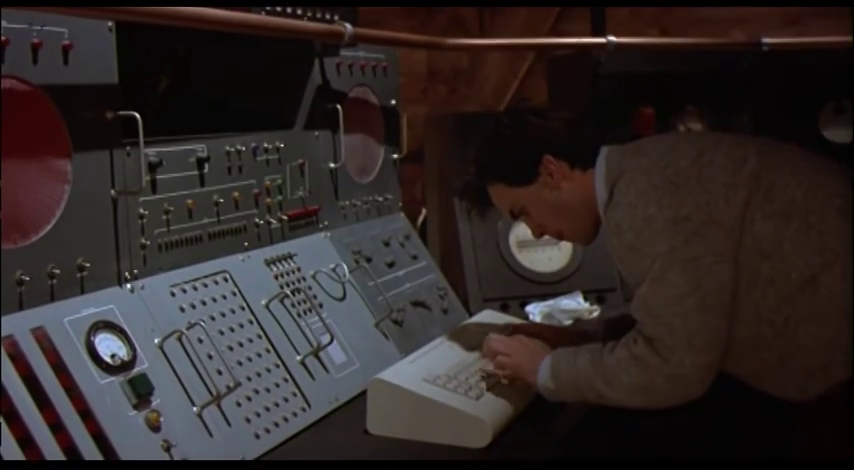
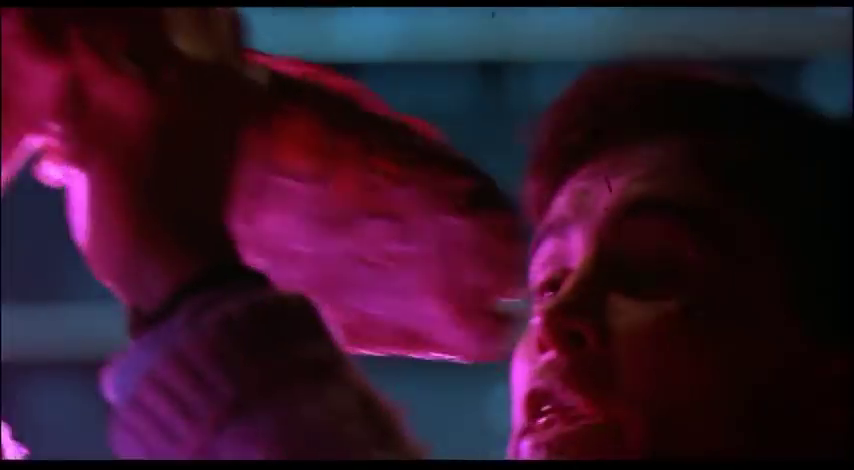
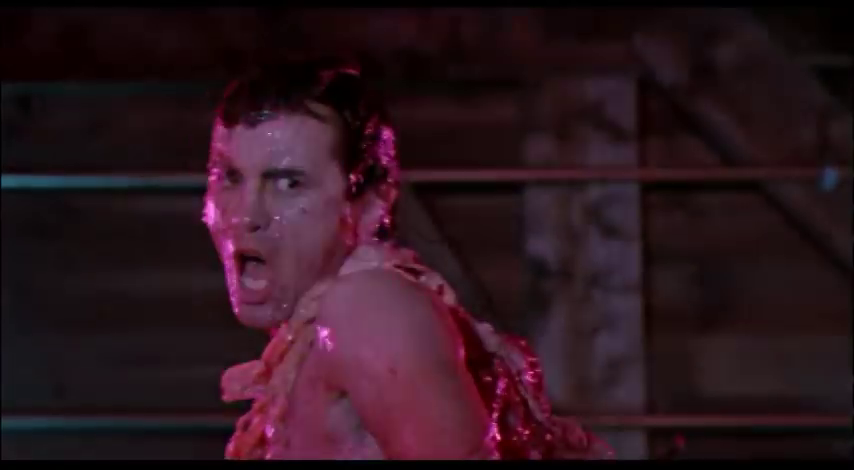
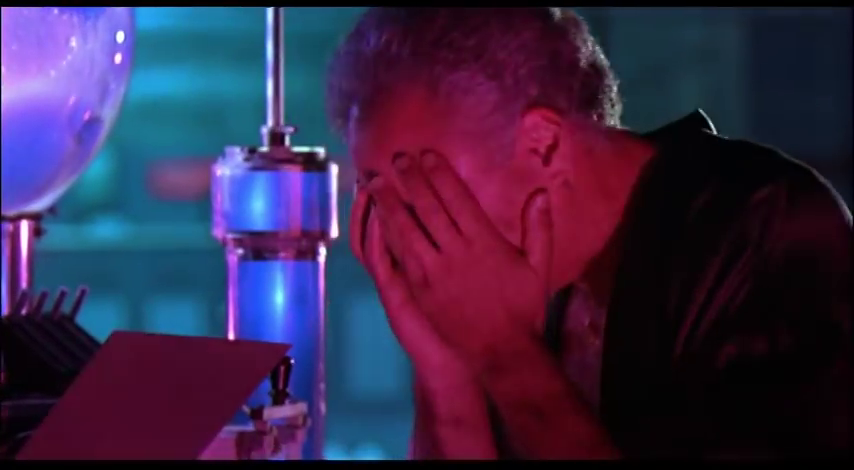
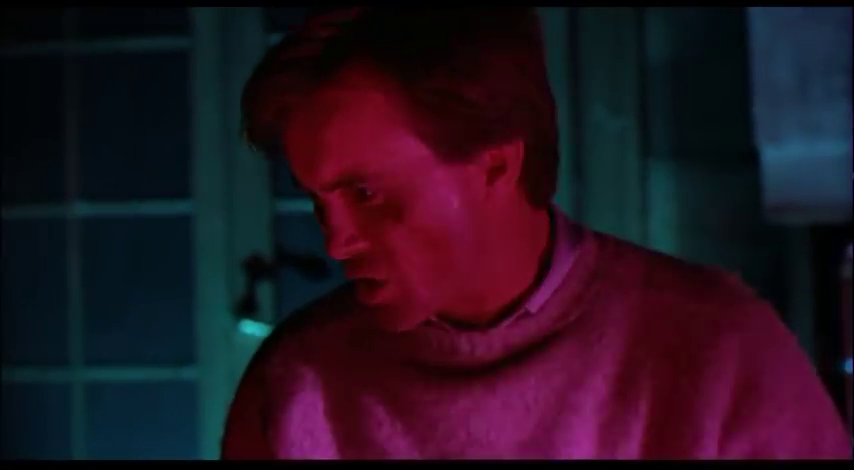
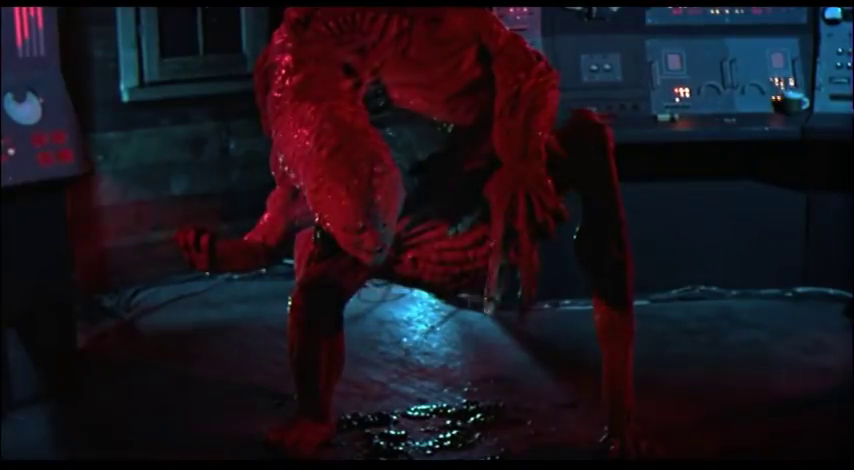
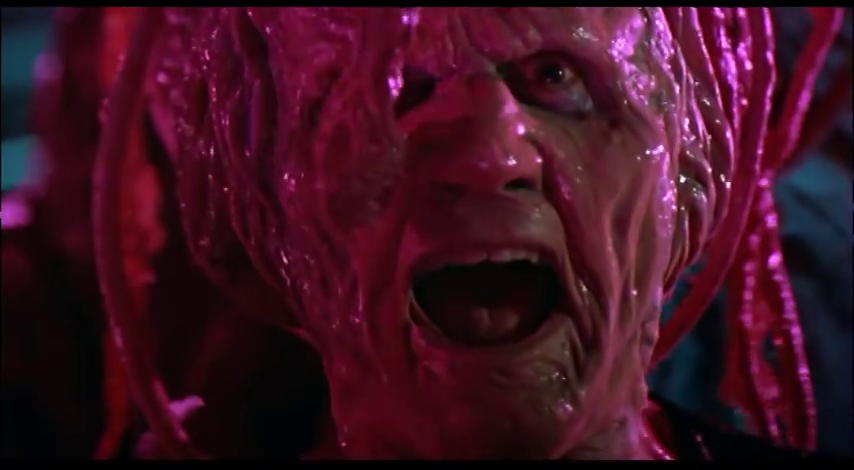
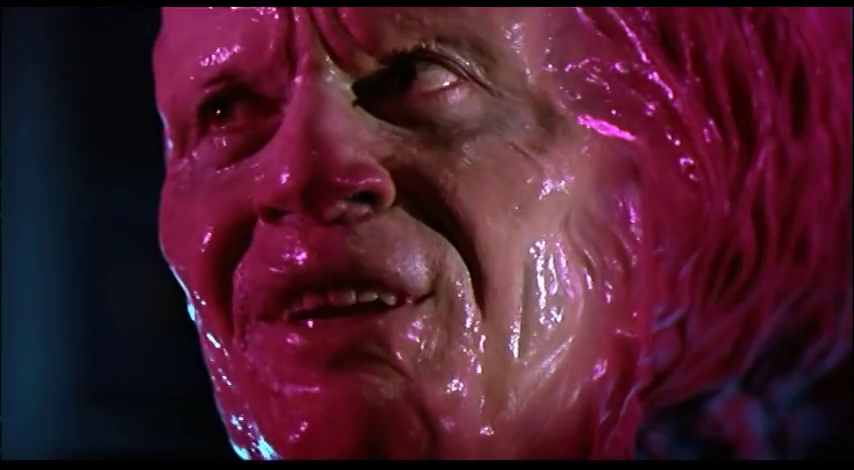

From Beyond (1986)
Film review #656
Director: Stuart Gordon
SYNOPSIS: Two scientists have developed a machine that allows access to a new dimension of reality beyond normal perceptions. testing it on himself, Dr. Edward Pretorius is exposed to a world beyond imagination, and becomes addicted to the experience. When the machine explodes and Pretorius seemingly dies, his assistant, Crawford Tillinghast, is arrested for murder. Seeking an answer to what truly happened, psychologist Dr. Katherine McMichaels returns to the scene to see whether Tillinghast’s wild claims are true…
THOUGHTS/ANALYSIS: From Beyond is a 1986 horror film based on H.P. Lovecraft’s story of the same name. two scientists invent a machine called the resonator that provides access to a dimension beyond human perception, when one of them is driven mad by the pleasures and sensations he experiences from beyond, the machine explodes and Pretorius is seemingly killed, his assistant, Crawford Tillinghast is arrested and committed to a psychiatric ward. Psychologist Dr. Katherine McMichaels attempts to get to the bottom of what happened, and whether Crawford is telling the truth about the events, by returning to the laboratory with him and recreating the experiments. What follows is a bit of a threadbare story, as the characters fumble about with the machine a bit and try to understand what it does. The real focus of this film is the body horror, and the gruesome special effects that increase in intensity and complexity as the film progresses. Make no mistake, this film is just an indulgence in sex, special effects, and the slimiest, twisted body horror that could be gotten away with. It’s weird, it’s over-the-top, and it’s exactly what it needs to be.
Lovecraft’s stories are notoriously difficult to adapt, owing to a rich lore and otherworldliness that is tough to bring to the screen. From Beyond takes a very non-pretentious approach and, as mentioned, focuses on body horror to showcase a realm beyond human experience. There’s definitely great effort gone into getting the practical effects looking as gross and as visceral as possible. Sure, it still looks like a low-budget film, but the aesthetic is still arresting, and shots never linger long enough for you to nitpick the details, which is smart. Honestly, for what it is, I think this is a pretty good film for cheap shlock: it doesn’t try to be something it isn’t, and still manages to pull off something memorable and creepy. Honestly worth a look if you’re into these types of films, but not much depth or content for a wider audience to grasp onto.
-
#655 – High-Rise (2016)
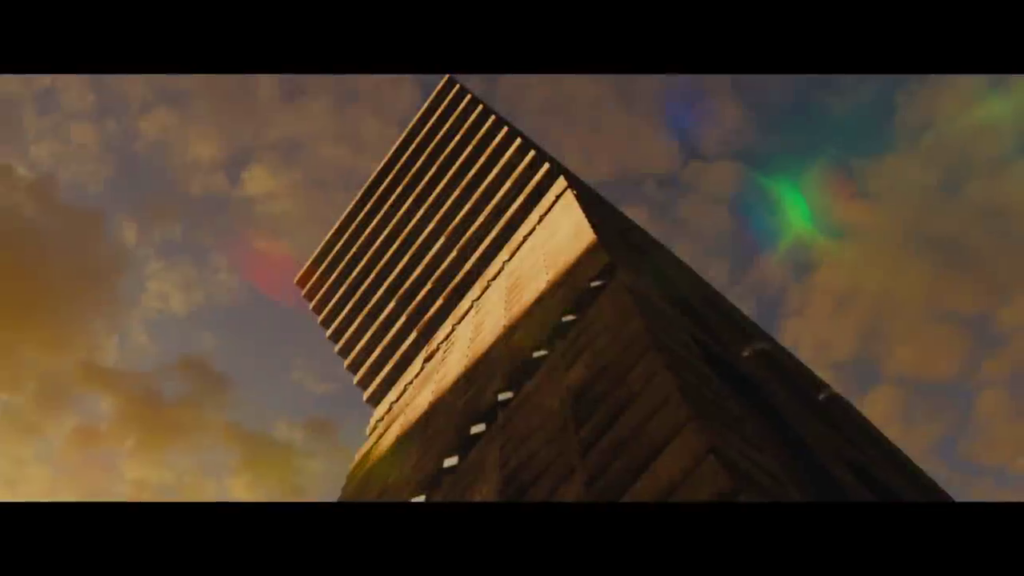

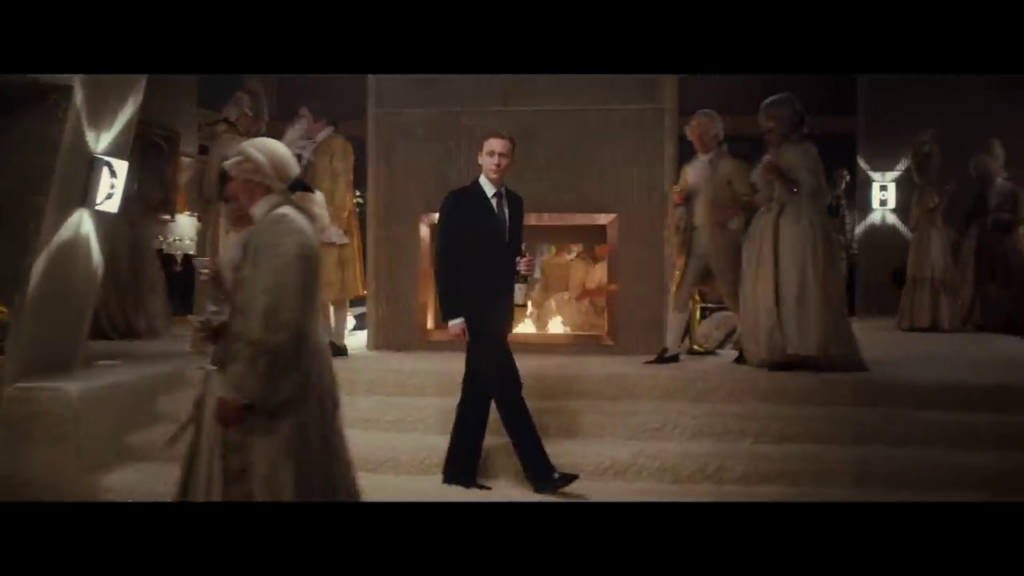
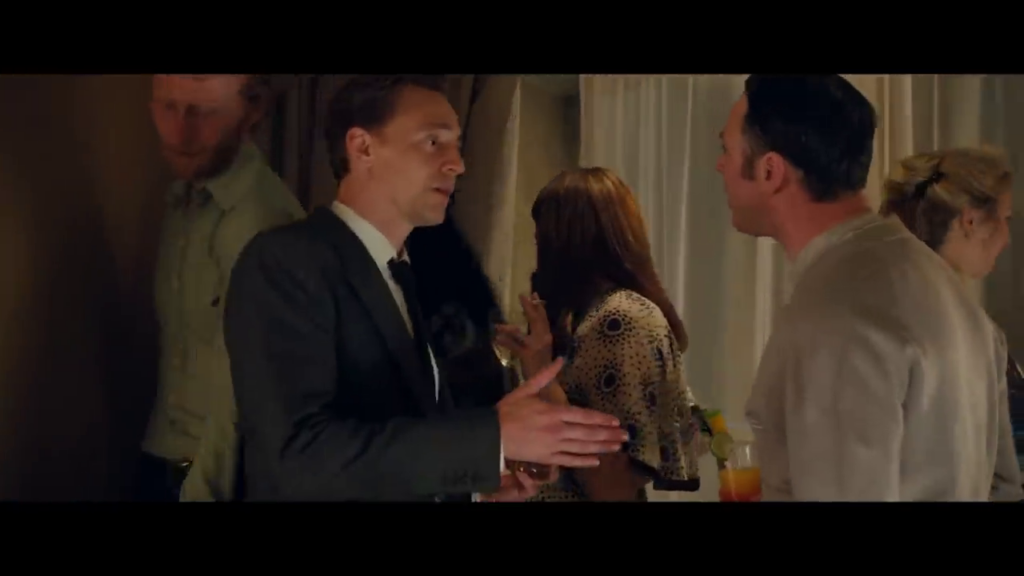
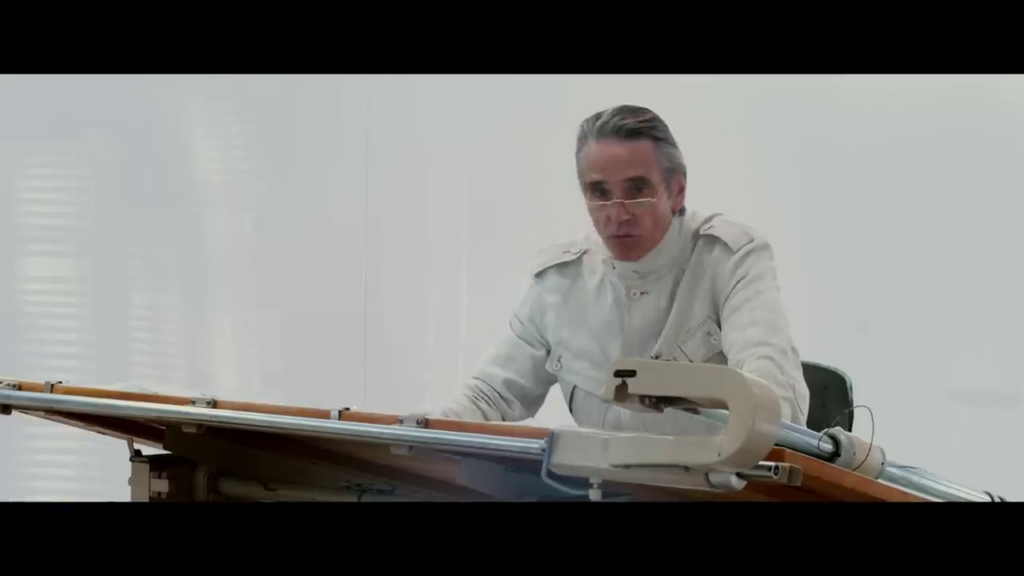
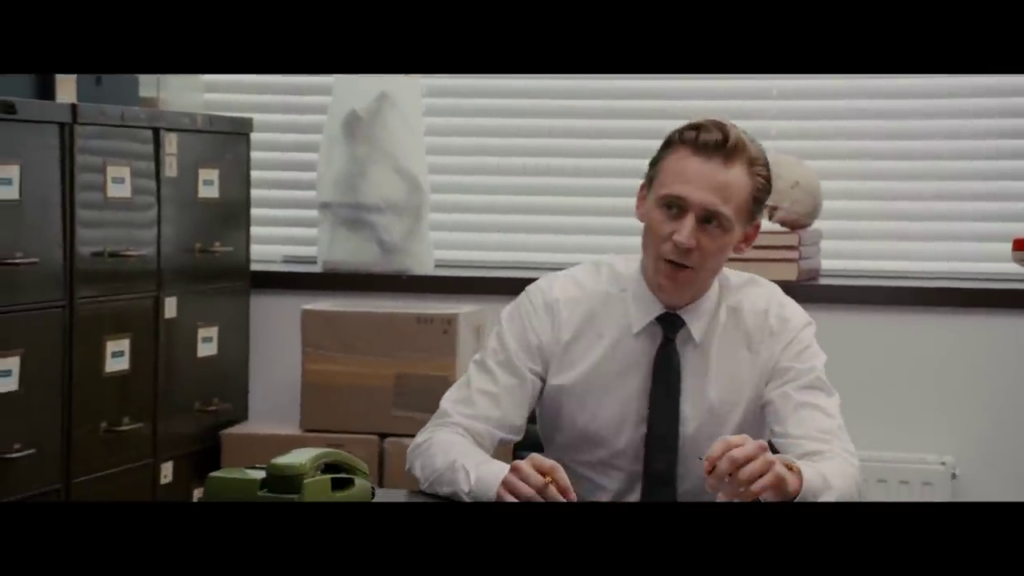
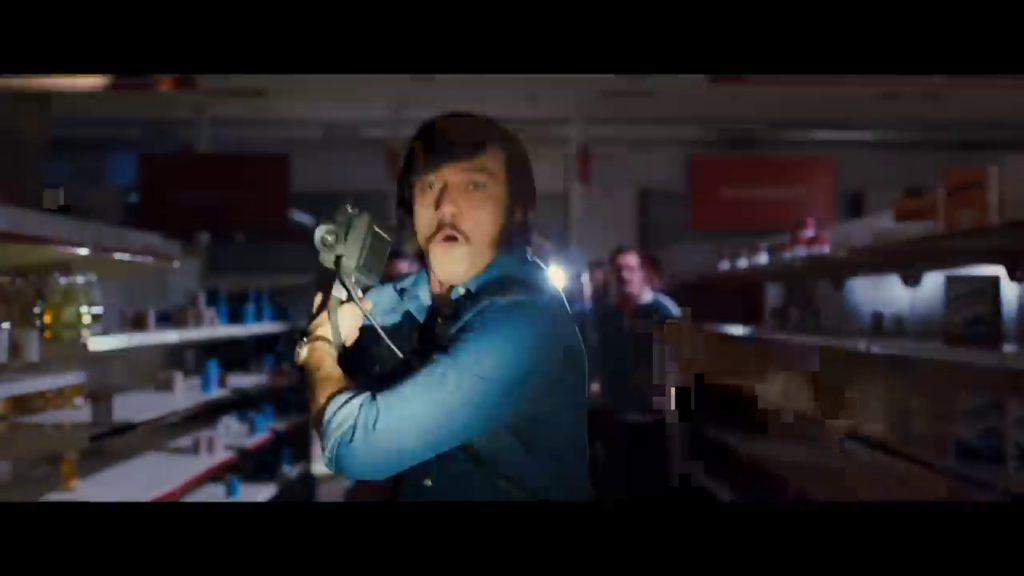

High-Rise (2016)
Film review #655
Director: Ben Wheatley
SYNOPSIS: Dr. Robert Laing moves into a brand new tower block, where the richest residents live at the top, and the poorest below. Seeing a world of decadence and excess, he eventually joins in on the social structure created by the building, but the social hierarchy is threatened as order breaks down…
THOUGHTS/ANALYSIS: High-Rise is a 2016 dystopian film based on the 1975 novel of the same name by J.G. Ballard. Set at the time of the original novel, the film focuses on neurologist Dr. Robert Laing as he moves into a state-of-the-art tower block on the outskirts of London, where the upper class residents live on the higher floors, while the poorer residents live below, with all amenities and services provided inside, so that leaving the block is hardly necessary. Wanting to live a quiet life, Robert tries to keep to himself, but eventually finds himself embroiled in the tower’s lavish lifestyle, and when the hierarchical order starts to break down, he must find a way to survive. A lot of this film focuses on style: it goes to great lengths to highlight the decadent lifestyle of the rich that goes on, to the detriment of those living below. There’s barely ten minutes that go by in this film without a new party scene kicking off. The setting is illustrated fairly well, and you get a good sense of the differences between the floors, and the points of contest that everyone has, reflecting society as a whole condensed into this single tower block, which echoes the intent of Ballard’s dystopian novel. While the film certainly captures the feeling of the 1970s of which it is set, with the ubiquitous tower blocks of the time providing the basis of its dystopian critique, it does perhaps lack the bite that Ballard’s original story did of the time with the contemporary setting. However, its contrast between social classes is still sharp enough.
The biggest problem with this film is the plot: while there undoubtedly is one, it is often obscured or unintelligible behind the overwhelming decadence and stimulation on screen, with all the shouting and partying, it’s difficult to get into the nuances concerning the different characters and their relations. The main beats of the lower class rebelling against the upper is fairly evident, but anything beyond that fails to establish itself. It may be argued that part of this is that the breakdown of society, along with the breakdown of the main characters mental state, are illustrated by this incoherence, but you can certainly show that while still making a story that’s simple to follow. As such, it never really grips you at any point, and there’s nothing really at stake for any of the characters, as this revolution never really seems out of necessity; it’s not like these people are trapped in the tower block, they could have left at any time. While the film focuses on its style and aesthetics, it somehow fails to showcase any human response or emotions in any of the characters. Again, you could argue that the absence of humanity in the conditions of the tower is part of the plot, but it fails to offer anything in place of that.
Overall, High-Rise revels in style and decadence to establish an environment in which humanity is lost amidst an all too familiar class struggle. Any sense of narrative or characters is lost amidst the constant party scenes and anarchy, meaning there is very little narrative to progress, and the mish-mash of sex and violence never coheres into anything graspable or meaningful. A mess, but a mess with a bit of flair.
